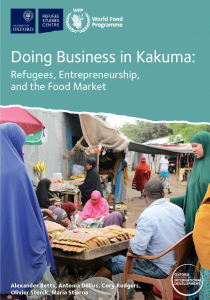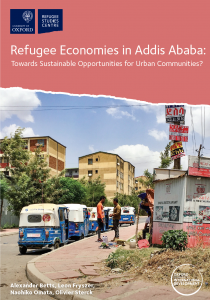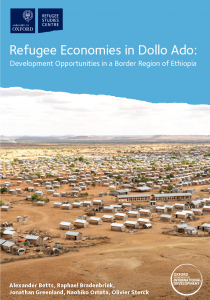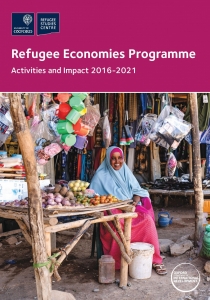alt=""
Researching the Economic Lives of Refugees
The Refugee Economies Programme, based at the University of Oxford, undertakes research on the economic lives of refugees.
Through primary data collection, we explore the conditions under which refugees can become self-sufficient and make positive economic contributions to their host states and societies. Our research is interdisciplinary, combining economics, anthropology, history, and political science. We collect original qualitative and quantitative data, and often draw upon a range of participatory methods, including working with refugee researchers. We aim to be policy-relevant but not policy-driven, and we collaborate with governments, international organisations, NGOs, refugee-led organisations, universities, and businesses.
“Refugees - like all human beings - have skills, talents, and aspirations. And yet too often we focus just on their vulnerabilities rather than their capacities. Our research challenges the view that refugees are an inevitable burden, identifying the conditions under which they can help themselves and contribute to their host societies.”
ALEXANDER BETTS
LEOPOLD MULLER PROFESSOR OF FORCED MIGRATION
AND INTERNATIONAL AFFAIRS
In September 2021, we began a new phase of the Refugee Economies Programme thanks to a new four-year funding agreement with the IKEA Foundation. This new phase builds on our previous research on the socio-economic inclusion of refugees in camps and cities in East Africa.
The Politics of Socio-Economic Rights
Why do some states provide refugees with socio-economic rights and opportunities, while others do not?
Borders, Mobility, and Livelihoods
What are the patterns and drivers for refugees’ mobility, and how do these movements shape refugees’ livelihood strategies, opportunities for self-reliance, and socio-economic outcomes?
Shocks, Vulnerability, and Livelihoods
What are the main coping strategies used by refugee households in case of negative shocks, and how can they be strengthened?
Refugee Stories
How can we bring representative quantitative data to life through the collection of qualitative human stories?
Through Refugee Stories, we aim to develop a new research methodology to create human stories that, instead of being arbitrary, are representative of the group they represent, and can be contextualized in relation to population-wide data.
Publications
The Refugee Economies Programme has published a range of reports, books, and briefing papers on the economic lives of refugees and their impact on host societies in Ethiopia, Kenya, and Uganda.
Our Work: 2016-2021
Between 2016-2021, the Refugee Economies Programme undertook research on the economic lives of refugees and their impact on host communities. The aim was to make an evidence-based contribution to the ways in which governments, international organisations, NGOs, and businesses support the socio-economic inclusion of refugees.
Our work had three complementary pillars: Economic outcomes, Innovative practices, and Political economy. These pillars collectively represent the questions that need to be answered to effect policy change.
Click here to learn more about the first phase of our research.
Refugee Economies Panel Dataset
The centrepiece of the first phase of our research was the collection of an original panel dataset, based on multi-country and time-series data collection. With a focus on Uganda, Kenya, and Ethiopia, the dataset covers urban and rural areas, refugees and hosts, and includes multiple data collection periods. It includes over 16,000 refugee and host community members from across six research sites.
We are pleased to make this dataset available. Currently, the dataset includes data on refugees only. The full dataset will be made available in 2025.
Contact Us
To learn more about the Refugee Economies Programme or share comments or queries, please get in touch with one of the team.
Refugee Studies Centre
Oxford Department of International Development,
3 Mansfield Road, OX1 3TB
Oxford
Our work is mainly funded by the IKEA Foundation.




